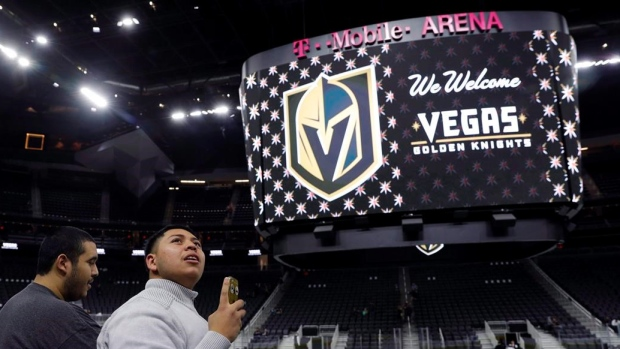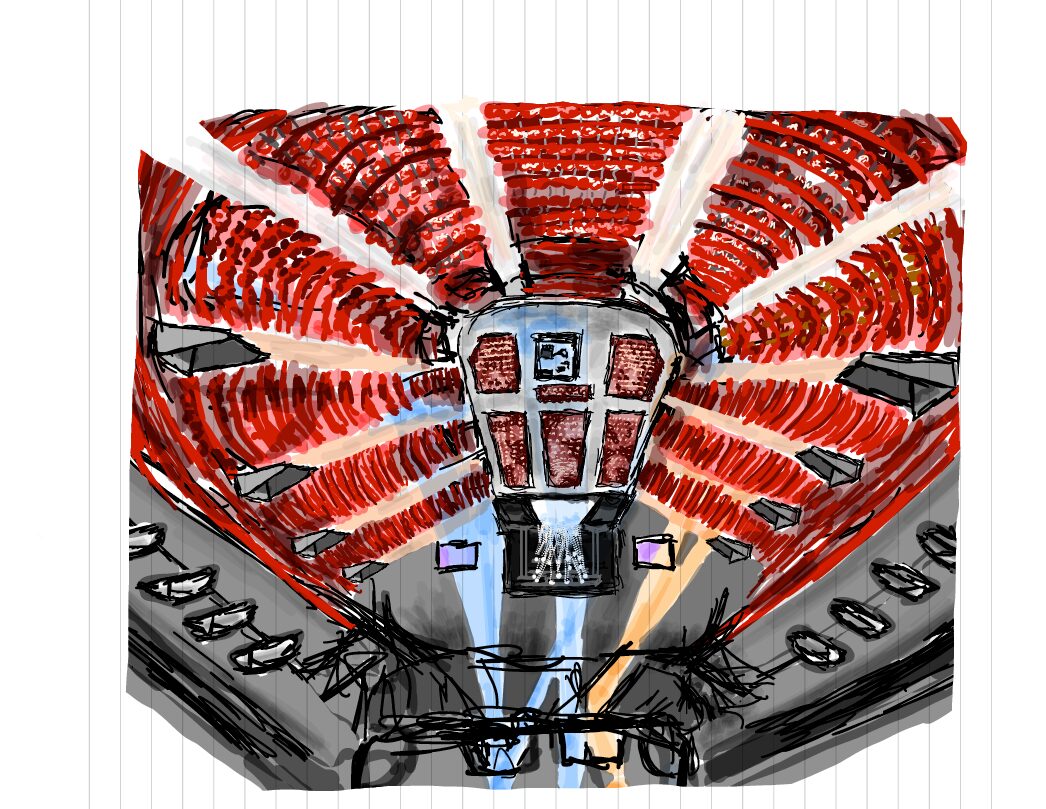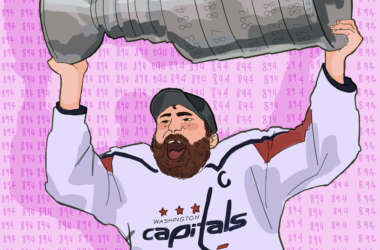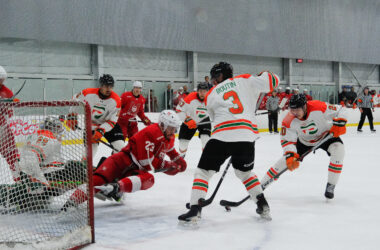The 2017 NHL Expansion Draft, taking place June 18-20, will mark the addition of a 31st team to the National Hockey League: The newly-minted Las Vegas Golden Knights. The NHL has drafted a set of rules that aim to create a competitive, brand-new team by selecting from existing NHL teams. The McGill Tribune previews the rules of the expansion draft and the best- and worst-placed teams:
Rules
The Golden Knights must pick at least 14 forwards, nine defencemen, and three goaltenders as part of their 30 selections. They must select one player from each of the other 30 franchises. To prevent them from being selected by the Golden Knights, teams may protect one goalie, as well as either seven forwards and three defencemen or eight total skaters. Players who have less than two years of professional experience are exempt from being selected and will not need to be protected, while players with no movement clauses must be protected by their teams.
Best Placed Teams
The Toronto Maple Leafs were carried by their incredible young talent to a breakout season in 2016-17, qualifying for the postseason for the first time since 2013. The rules of the expansion draft automatically exempt rookie and sophomore players from Las Vegas’ selection pool, allowing the Leafs to comfortably protect the rest of their roster’s core. The only forwards who will be exposed are fourth liners and minor league players, while their best defencemen are either exempt (Nikita Zaitsev) or can be protected with the three protection spots. Toronto will only expose older players, fringe defencemen, or backup goalies—none of whom are key to the Leafs’ promising future anyway.
The Carolina Hurricanes have one of the more impressive blue lines in the league with most of these defenders exempt from the draft because of their youth. Three protected spots will be more than enough to keep their defensive core intact. Meanwhile, they lack standout offensive talent, which gives them flexibility in selecting their seven protected forwards. They also have some security with their goaltenders: After signing Scott Darling, they can carry on with either Cam Ward or Eddie Lack as the backup next season without the draft hurting them.
The New Jersey Devils are in a rebuilding phase, so they don’t have to worry about losing any valuable players. While that may not be ideal for the team’s results next season, it gives them plenty of spots to protect future stars like Taylor Hall and Adam Henrique. Any Devil that Las Vegas snags in the draft will not be of great consequence to New Jersey. Compared to the possible availability of talented players from other teams, the Devils don’t have much to offer and will benefit from the league-wide talent dilution.
Worst Placed Teams
With blue-liners like Cam Fowler, Sami Vatanen, and Hampus Lindholm, the Anaheim Ducks arguably boast the NHL’s second-best collection of defencemen after Nashville. Unlike the Hurricanes, however, most of these defenders must be protected if the Ducks intend to keep them. On top of that, Kevin Bieksa and three forwards have no-movement clauses. With a defence-heavy talent pool, Anaheim will be one of the teams leaning towards protecting eight skaters—rather than the standard seven forwards and three defencemen. This means they will have to expose playoff hero Jakob Silfverberg or 33-goal scorer Rickard Rakell. Either would be a big loss to a team with aging forwards.
The New York Rangers face a serious predicament between the pipes. Goaltender Henrik Lundqvist, 35, has a no-movement clause that forces the exposure of up-and-comer Antti Raanta. The Rangers could move Lundqvist before the draft or make a deal with the Knights, but both options still result in the exposure of other assets, such as 27-goal scorer Michael Grabner or young forward Mika Zibanejad.
The Nashville Predators, as previously mentioned, have the best defensive corps in the league. Like Anaheim, Nashville will likely choose the eight skater option and protect P.K. Subban, Ryan Ellis, Mattias Ekholm, and Roman Josi. However, with only four possible protected spots for their forwards, they will have to expose their limited selection of centremen. Nashville’s offensive talent pool is already stretched thin; losing a player like Colin Wilson, Craig Smith, or playoff standout Calle Jarnkrok could critically damage their forward combinations.









